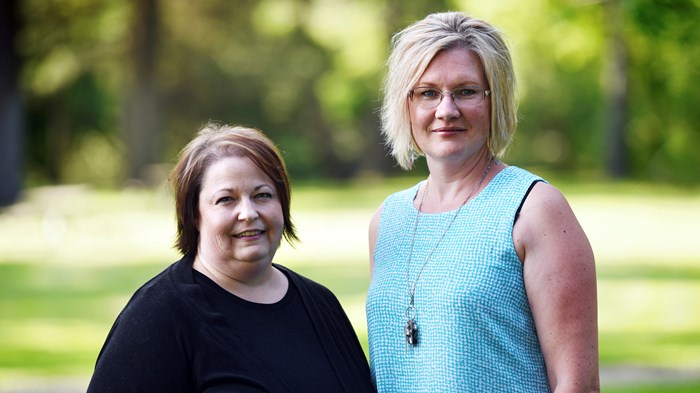
Update (June 30): Montana violated the First Amendment when it barred religious schools from a state scholarship program, the US Supreme Court ruled Tuesday, in a case school choice advocates hope will open the door for more education voucher programs.
The state’s “no aid provision,” categorically banning any type of aid to religious schools, represents an overly sweeping effort at church-state separation that results in religious discrimination against religious schools and adherents, wrote Chief Justice John Roberts in the 5–4 Espinoza vs. Montana Department of Revenue decision.
“The prohibition before us today burdens not only religious schools but also the families whose children attend or hope to attend them,” the opinion read. “They are ‘member[s] of the community too,’ and their exclusion from the scholarship program here is ‘odious to our Constitution’ and ‘cannot stand.’”
Roberts said that states do not need to subsidize private education, but if they do, they cannot disqualify some private schools just for being religious.
“For many families, Espinoza not only provides the potential for expanded opportunities for them to educate their children, including the choice of religious education, but also the right to decide what they believe is the most effective way to do so,” said Jeanne Allen, the founder of the Center for Education Reform.
-----
When a Montana tax credit program for private school scholarships was accused of being discriminatory because religious schools were not eligible, the state eliminated the program outright rather than fight the case.
But now, the state has ended up at the US Supreme Court anyway, with a legal dispute centering around whether the legal basis Montana (and dozens of other states) uses to bar public funding of religious education is constitutional.
The justices will hear arguments Wednesday in Espinoza vs. Montana Department of Revenue, a case over a scholarship program for private K-12 education that makes donors eligible for up to $150 in state tax credits. Advocates on both sides say the outcome could be momentous because it could lead to efforts in other states to funnel taxpayer money to religious schools.
Montana is among 37 states that have provisions in their state constitutions that prohibit religious schools from receiving state aid, also known as Blaine amendments.
Legal advocates and Christian schools opposed to the restrictions say they discriminate against religious families by blocking them from government benefits available to others, or by favoring secular education. They also note that such prohibitions were historically designed to not to keep the government from endorsing religion—since a Protestant ethos was generally part of public education—but to deny support to Catholic (“sectarian”) schools in particular.
Like many religious freedom cases, this one floats the balance between the establishment clause—the government cannot support a particular faith over others—and the free exercise clause—it cannot prohibit citizens from exercising their religious beliefs.
In a brief to the Supreme Court, the Montana Department of Revenue argued, “Different states, with different legislatures and different constitutions, will arrive at different policies,” which “is something to celebrate, not quash.”
Diana Verm, senior counsel with Becket Fund for Religious Liberty, which filed a friend-of-the-court brief in support of the plaintiffs, challenged whether Montana had gone too far with its “no aid” provision.
“It’s true you do want space for states to address things in their own way, but the free exercise clause is always the limit in this case,” she said in an interview with CT. “Does the free exercise clause allow a state to end a program because parents who receive funding from that program would use it at a religious school?”
The US Justice Department wrote that Montana’s stance “penalizes parents who choose a religion rather than a secular school for their children.” Jameson Coppola, legal director for the American Association of Christian Schools, similarly told CT “the unjust prohibitions in the Blaine amendments … restrict religious people from educating their children in ways that others in society are able to.”
Others fear that school choice programs, vouchers, individual tax credits or deductions and education savings accounts, ultimately siphon public money away from public schools and weaken the education system.
The Montana Tax Credit Scholarship Program was created in 2015 to allow Montanans a tax credit of up to $150 for individual and business contributions to a privately run scholarship program for private school tuition. Though most private schools in Montana are religiously affiliated, the Montana Department of Revenue issued a rule that barred families from using the scholarships at religious schools, citing the state’s Blaine Amendment, and the Montana Supreme Court ultimately struck down the tax credit as a violation of Blaine.
Kendra Espinoza of Kalispell, Montana, the lead plaintiff in the Supreme Court case, said the state court decision amounts to discrimination against her religious freedom. “They did away with the entire program so that no one could use this money to send their kids to a religious school,” Espinoza told the Associated Press. Her two daughters attend the Stillwater Christian School in Kalispell, near Glacier National Park. Espinoza said she could not afford to keep her daughters enrolled without financial aid from the school, where tuition this year is $7,735 for elementary and middle school and $8,620 for high school.
The state hoped the wholesale invalidation of the program would shield it from Supreme Court review. In urging the Supreme Court to reject the case, Montana said it can’t be compelled to offer a scholarship program for private education. The state told the justices that the Montana court decision did not single out students at religious schools because the state court ruling struck down the entire program.
In addition to support from Christian advocates and the Trump administration (whose Secretary of Education Betsy DeVos is known for her favorable stance on school choice), the Jewish Coalition for Religious Liberty filed a friend-of-the-court brief discussing the important of Jewish day schools in Jewish education.
Coppola, with the Christian schools association, points to the recent Supreme Court decisions regarding the Bladensburg Peace Cross and the Trinity Lutheran playground as evidence that this court sees a difference between establishing a religion and impeding the free exercise of religion. (In the Bladensburg case, the Supreme Court ruled 7-2 in favor of allowing a memorial cross to remain on a state-owned median in Bladensburg, Maryland, and declared that government efforts to maintain the landmark do not violate the religion clause of the Constitution. In Trinity Lutheran Church v. Comer the Court voted 7-2 in favor of a conservative Lutheran congregation seeking a state grant for improving its playground.)
If the Supreme Court rules in favor of Montana, Verm said it will be a missed opportunity to provide states with guidance on Blaine amendments. “If it doesn’t take this opportunity, we’ll see a lot more litigation and as we wait for guidance on when states can exclude religious groups from their programs.”

Support Our Work
Subscribe to CT for less than $4.25/month


















